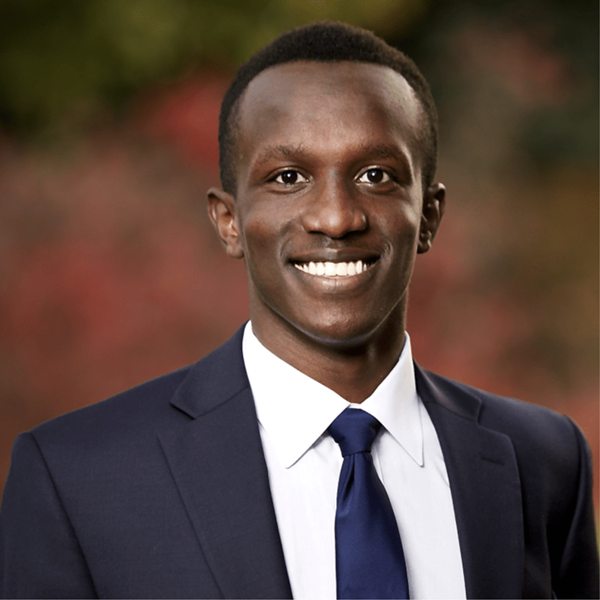Anusha Adavikottu, Ph.D., and Azariah K. Kaplelach have been selected as Emerging Scholars for 2025-2026 by Civitan International Research Center.
The Emerging Scholar Award provides research funding for clinical or basic science research related to brain development for trainees at the graduate student and postdoctoral fellow levels. Awards are made possible by donations from Civitan International, matching funds from the Foundation for Children with Intellectual and Developmental Disabilities, and UAB's University-wide Interdisciplinary Research Centers (UWIRC) program.
Enhancing driver safety for autistic individuals Anusha Adavikottu, Ph.D.Anusha Adavikottu, Ph.D., a postdoctoral fellow in the Department of Civil, Construction, and Environmental Engineering, is investigating how autism spectrum disorder affects driving behavior. Autistic individuals may face challenges while driving—such as regulating attention, making quick decisions, or recognizing potential hazards—which can affect road safety and driving ability.
Anusha Adavikottu, Ph.D.Anusha Adavikottu, Ph.D., a postdoctoral fellow in the Department of Civil, Construction, and Environmental Engineering, is investigating how autism spectrum disorder affects driving behavior. Autistic individuals may face challenges while driving—such as regulating attention, making quick decisions, or recognizing potential hazards—which can affect road safety and driving ability.
Adavikottu's study will examine how adaptive technologies and neuromodulation techniques can enhance this population's driving experience and safety outcomes.
The study will integrate two significant components:
Human-Machine Interface (HMI) design—how individuals interact with machines (ex, buttons, screens, or controls).
Transcutaneous auricular vagus nerve stimulation (taVNS)—a non-invasive technique that sends small electrical signals through the ear.
"While current Advanced Driver Assistance Systems (ADAS) are designed with neurotypical drivers in mind, there is limited research on how these systems can be adapted for neurodiverse drivers," said Adavikottu.
"Our project aims to address this gap by identifying optimal or suitable HMI modalities (visual, auditory, or multimodal) tailored for autistic drivers and evaluating whether taVNS can support attention and cognitive control under real-time driving conditions."
Through this combined approach, Adavikottu's study will help guide the development of driving tools that are personalized to an individual's needs while exploring practical ways to make driving more accessible.
"The infrastructure available at UAB— driving simulator laboratory and research opportunities provided by the Civitan International Research Center— enables advanced research work that bridges behavioral neuroscience, psychophysiology, engineering, and transportation safety."
"The collaborative culture and focus to inclusive research at UAB make it an ideal place to explore innovative, translational solutions for neurodevelopmental challenges."
Investigating astrocyte-specific therapies for CLN11 Azariah K. KaplelachAzariah K. Kaplelach, a graduate student in the Graduate Biomedical Sciences Neuroscience Track, is researching a rare and serious brain disorder called neuronal ceroid lipofuscinosis (NCL).
Azariah K. KaplelachAzariah K. Kaplelach, a graduate student in the Graduate Biomedical Sciences Neuroscience Track, is researching a rare and serious brain disorder called neuronal ceroid lipofuscinosis (NCL).
NCL occurs when the cell's waste disposal system, called the lysosome, does not work properly. As a result, waste materials called lipofuscin build up inside brain cells, slowly causing damage. This disorder typically begins in childhood or the teenage years. As it progresses, it may cause vision loss, seizures, early problems with memory and thinking, and in severe cases, can lead to early death.
Kaplelach will focus on neuronal ceroid lipofuscinosis type 11 (CLN11)—a specific type of NCL that occurs when the body doesn't make enough of a protein called progranulin. His research aims to understand what causes brain cells to break down in this disease.
"A key question for progranulin-boosting therapy for CLN11 patients is which cell type(s) should be targeted for progranulin delivery," said Kaplelach.
"Studies have shown that astrocytes may aid in driving NCL-like pathology in the brain. My project aims to investigate whether boosting progranulin specifically in astrocytes will protect against disease."
Through this research, Kaplelach aims to uncover the astrocyte-specific mechanisms underlying NCL and significantly advance the development of progranulin-based therapeutics for CLN11.
"UAB research provides a perfect environment for young trainees like me. This institution gives me the space to gain all the knowledge necessary to succeed through insightful collaborations, seminars, and courses," said Kaplelach.
"My experiences through UAB will ultimately equip me with the knowledge to make meaningful impacts on the world."
Civitan International Research Center
•
August 13, 2025